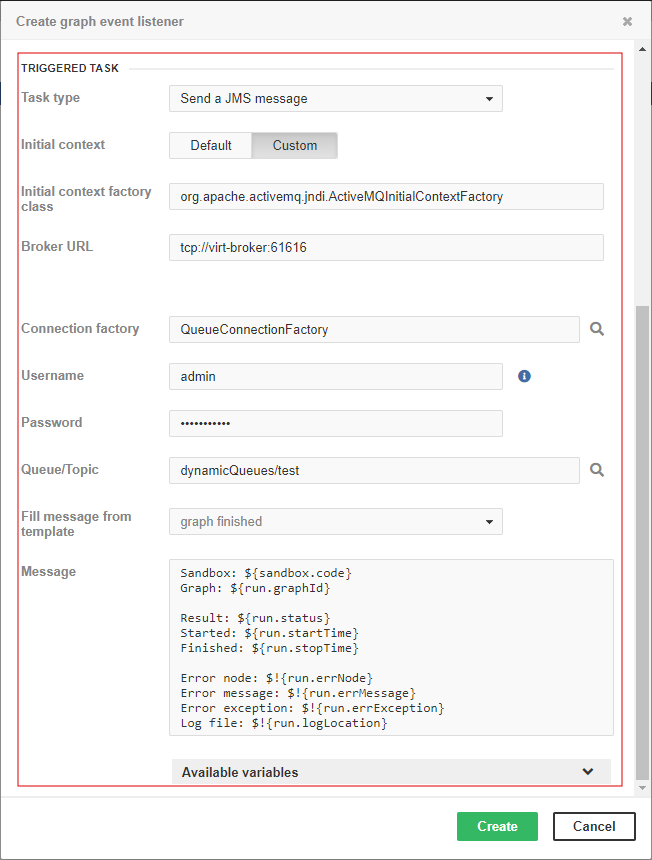Choose between the default and custom initial context.
Send a JMS Message
This type of task is useful for notifications about result of a graph execution. For example, you can create a graph event listener with this task type to be notified about each failure in a specific sandbox or failure of a particular graph.
JMS messaging requires JMS API (javax.jms-api-2.0.jar) and third-party libraries. All these libraries must be available on the application server classpath.
| Name | Description |
|---|---|
Task type |
"JMS message" |
Initial context |
|
Initial context factory class |
A full class name of |
Broker URL |
A URL of the broker. |
Connection factory |
The JNDI name of a connection factory. It depends on a JMS provider. |
Queue/Topic |
The JNDI name of a message queue/topic on the server. |
Username |
A username for connection to a JMS message broker. |
Password |
A password for connection to a JMS message broker. |
Fill message from template |
This select box is available only when the user is creating a new graph listener. It contains all predefined JMS message patterns. If the user chooses any of them, the text field below is automatically filled with a value from the pattern. |
Message |
The body of a JMS message. It is also possible to use placeholders. For details, see Placeholders. |

| Name | Description |
|---|---|
event |
The event that triggered the task. |
now |
Current date-time |
task |
The triggered task. |
user |
The object representing the owner of the schedule. It contains sub-properties that are accessible using dot notation (i.e. ${user.email}) email, username, firstName, lastName, groups (list of values). |
schedule |
The object representing the schedule that triggered this task. It contains sub-properties that are accessible using dot notation (i.e. ${schedule.description}) description, startTime, endTime, lastEvent, nextEvent, fireMisfired. |
EVENT_USERNAME |
The username of the user who caused the event |
EVENT_USER_ID |
A numeric ID of the user who caused the event. |
EVENT_SCHEDULE_DESCRIPTION |
A description of the schedule |
EVENT_SCHEDULE_EVENT_TYPE |
The type of the schedule - SCHEDULE_ONETIME or SCHEDULE_PERIODIC. |
EVENT_SCHEDULE_ID |
A numeric ID of the schedule. |
EVENT_SCHEDULE_LAST_EVENT |
Date-time of the latest schedule triggering (in java.util.Date.toString() format). |
